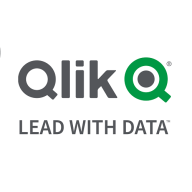

Skyvia and Qlik Compose offer competitive data integration and management solutions. Skyvia stands out for its competitive pricing and support, while Qlik Compose appeals with advanced features for comprehensive functionality.
Features: Skyvia provides seamless cloud data integration with automated workflow scheduling and a no-code interface, supporting easy data migration across diverse sources. Qlik Compose offers advanced data warehouse automation and robust transformation capabilities, including data modeling and lineage features for complex data management needs.
Ease of Deployment and Customer Service: Skyvia is easily deployed across various environments with intuitive operation and responsive support, ideal for quick setups. Qlik Compose’s complex deployment is supported by extensive documentation and professional support to help businesses with detailed data integration requirements.
Pricing and ROI: Skyvia is praised for its attractive pricing model and low initial setup costs, ensuring a rapid ROI for businesses looking for quick results. Although Qlik Compose incurs a higher upfront cost, it offers long-term value through efficient data management and improved operational efficiency, appealing to businesses investing in extensive data solutions.
| Product | Market Share (%) |
|---|---|
| Qlik Compose | 1.0% |
| Skyvia | 0.7% |
| Other | 98.3% |

| Company Size | Count |
|---|---|
| Small Business | 3 |
| Midsize Enterprise | 3 |
| Large Enterprise | 6 |
Qlik Sense is a powerful business intelligence tool that offers a range of features to help organizations make faster and more informed decisions. Its primary use cases include operational and financial dashboards, self-service reporting, and centralized access to cross-functional reports. The solution is praised for its mobile platform, ease of use, data-sharing capabilities, and extensibility.
Qlik Sense has helped organizations improve data literacy, reduce time consumed in complex reports, and provide widely available MI to senior stakeholders. It also enables self-service analytics, improves data quality and governance, enhances collaboration, and reduces costs.
Skyvia is a cloud-based data integration platform enabling seamless data connection, management, and analysis across cloud apps and databases.
Skyvia offers a comprehensive suite for ETL, data backup, replication, and connectivity across major cloud services. It's designed for users requiring robust data manipulation and transfer capabilities without extensive coding knowledge. Its intuitive tools simplify complex tasks like data synchronization and transformation.
What are the key features of Skyvia?Industries like e-commerce, finance, and healthcare implement Skyvia to achieve efficient data processing and analytics integration, ensuring consistent data flow and real-time insights into operations.
We monitor all Data Integration reviews to prevent fraudulent reviews and keep review quality high. We do not post reviews by company employees or direct competitors. We validate each review for authenticity via cross-reference with LinkedIn, and personal follow-up with the reviewer when necessary.